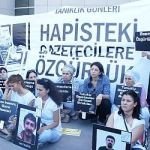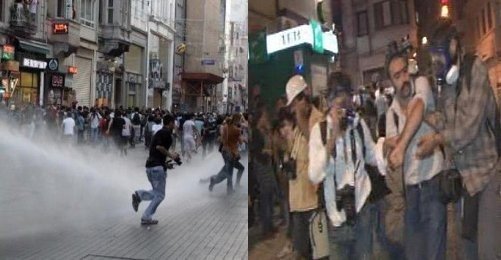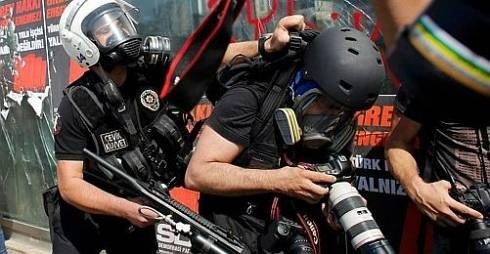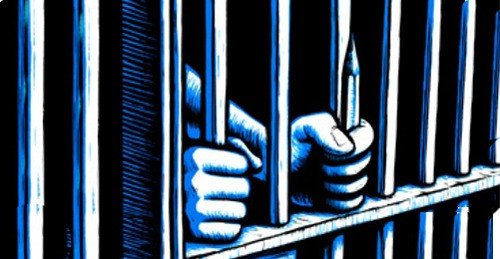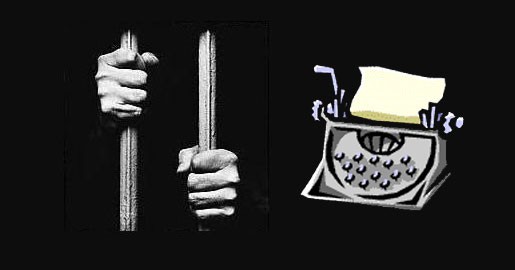
Today is 'World Press Freedom Day'. United Nations dedicated this day to 'press freedom' in accordance with Article 19* of The Universal Declaration of Human Rights in order to protect freedom of expression right.
So, is there a 'free press' in Turkey?
bianet asked four questions:
* What are your studies regarding the journalism problems in Turkey; editorial independence, censorship, self-censorship?
* Do you have any projects for the trial processes of the journalists and the journalists in jail?
* What are the major barriers against press freedom in Turkey?
* What do you think about the new judiciary package prepared for media?
The President of Press Council Orhan Birgit, The President of Progressive Journalist Association (ÇGD) Ahmet Abakay, The Spokesman of G-9 Journalist Organizations Platform Doğan Tılıç,The President of The Media Association Salih Memecan, The President of The Turkish Journalists Association (TGC) Orhan Erinç, The Spokesman of The Platform for Solidarity with Arrested Journalists (TGDP) Necati Abay , The President of The Federation of Journalists Turkey (TGF) Atilla Serter, The President of Journalists Union of Turkey (TGS) Ercan İpekçi answered our questions.
According to bianet Media Monitoring Report, 100 journalists and 35 newspaper distributors were in jail in April.
96 journalists in jail
Ragıp Zarakolu (Belge Publications House owner, writer of Özgür Gündem), Songül Karatagna (writer of Özgür Gündem), Hamdiye Çiftçi (Dicle News Agency (DİHA) Hakkâri reporter), Murat Çiftçi (DİHA reporter) ve Osman Baha Okar (The Editor of 'Bilim ve Gelecek' Monthly Science, Culture, Politics Journal) were released during April.
Chief Editor of Mücadele Birliği Magazine (United Struggle Magazine) Gülnaz Yıldırım Yıldız was arrested. 96 journalists and 35 newspaper distributors are in jail by May 3, 2012. According to 2011-2012 World Press Freedom Report of Reporters without Borders (RSF) Organization, Turkey is the 148th place among 179 countries.
Parallel problems and demands
The situation of press freedom in Turkey seems pretty obvious; the journalists are labeled as 'terrorist' due to their reports; they are taken into custody within the scope of operations and their imprisonment periods are enlarged.
The opponent newspapers and magazines are seized, banned or suspended, journalists are dismissed, so the hands of journalists are tied towards the power and this leads to censorship and/or self-censorship.
Media professionals are inactivated by the Press Law, they lost their social rights and the 3rd judicial reform is waiting since January at TBMM; these are the major problems of media.
When that was the situation of press freedom in Turkey, we asked questions to 7 journalism organizations and a union about their projects on editorial freedom and the journalists on trial issues.
"Anti-Terror Law should be changed; Specially Authorized Courts should be removed!"
"Due to Anti-Terror Law, journalists can be accused and labeled as 'terrorists' so Anti Terror Law should be changed" is the agreed decision of 7 media organizations and the union.
Press Council, The Progressive Journalist Association (ÇGD), G-9 Journalists Organization Platform, Media Association, The Turkish Journalists Association (TGC), The Platform for Solidarity with Arrested Journalists (TGDP), The Federation of Journalists Turkey (TGF), Journalists Union of Turkey (TGS) all agree that Specially Authorized Courts inhibit the press freedom.
They all share the same opinion. They all argue that the package covering a significant portion of the crimes committed through the media and the crimes with an upper limit of 5 years of imprisonment is just a temporary solution. Although the package has positive aspects like the abatement of the journalists' trials and three-year postponement of the penalties, it doesn't contain any improvements regarding the ambiguous articles of Anti-Terror Law (TMK) and threat of journalists' imprisonment for three years. (EG/HK)
*The Universal Declaration of Human Rights Article 19: 'Everyone has the right to freedom of opinion and expression; this right includes freedom to hold opinions without interference and to seek, receive and impart information and ideas through any media and regardless of frontiers.' (EG/BA)






